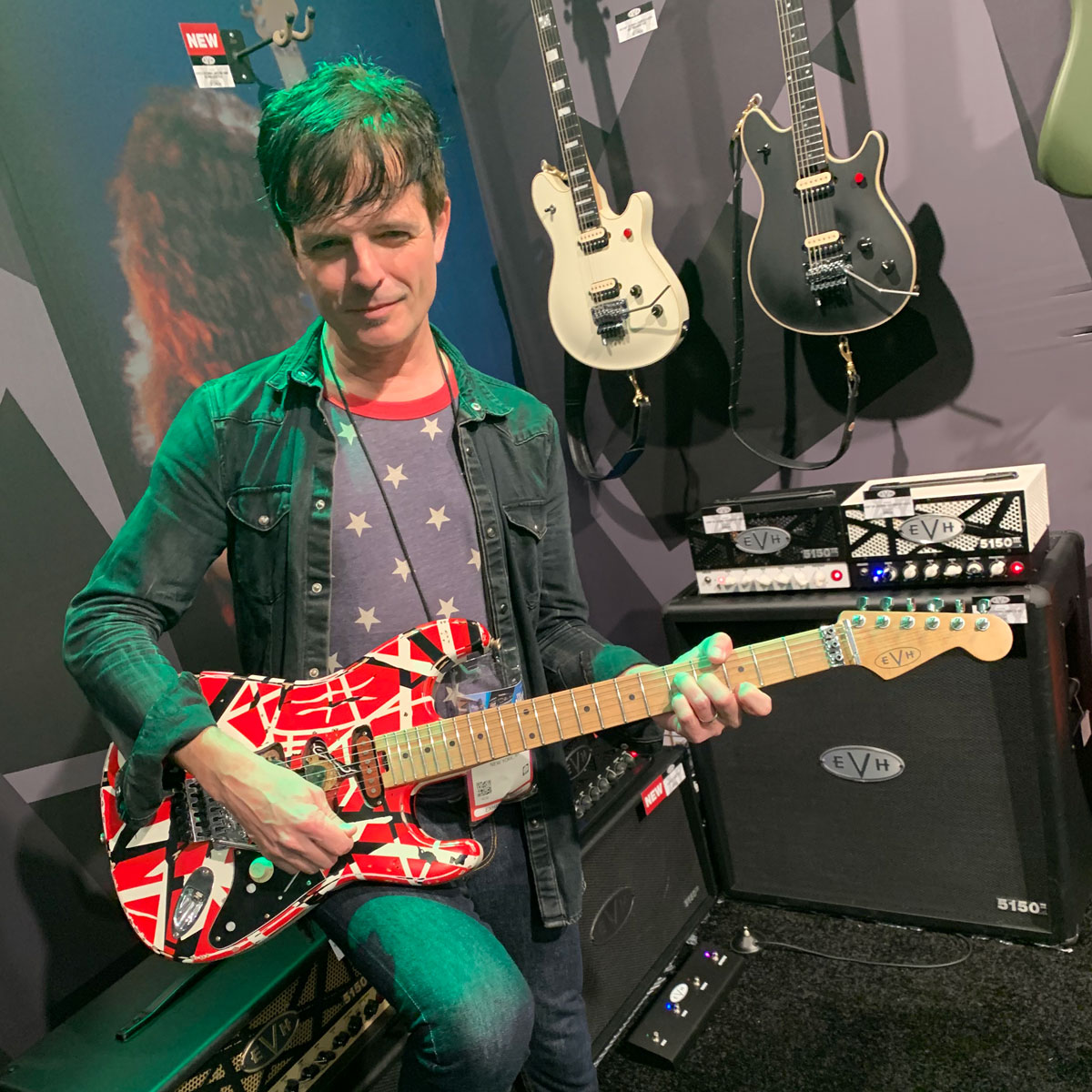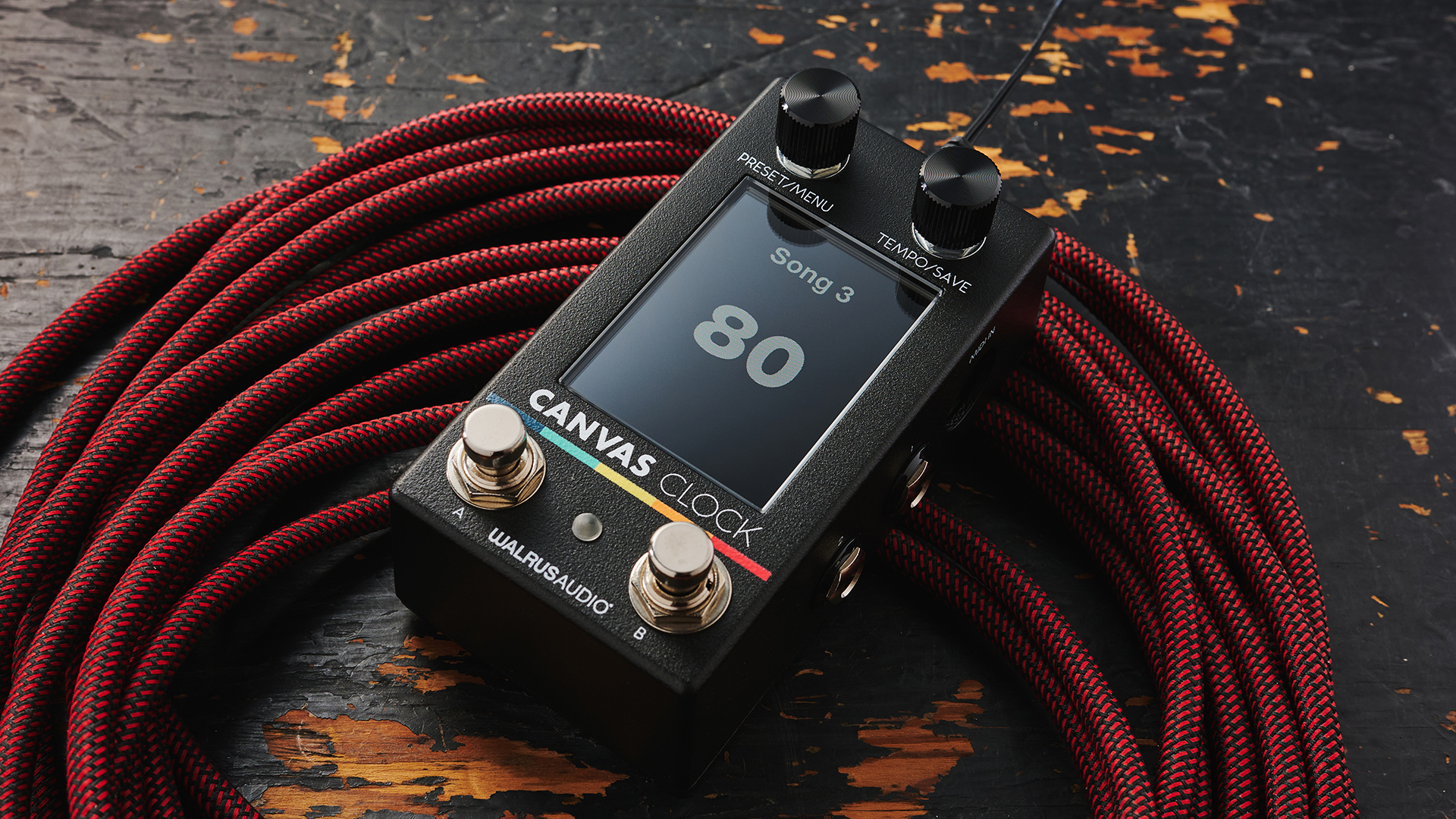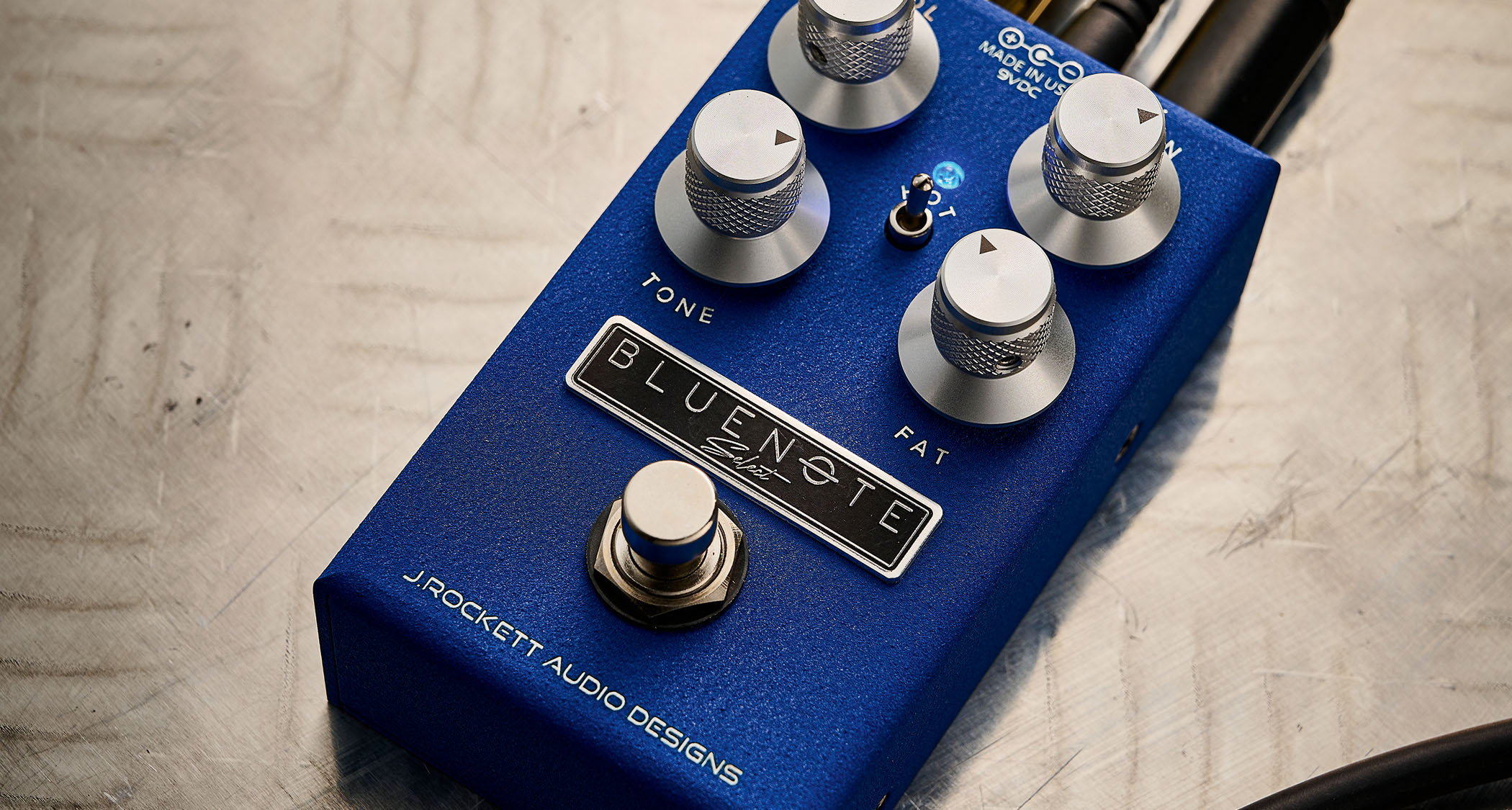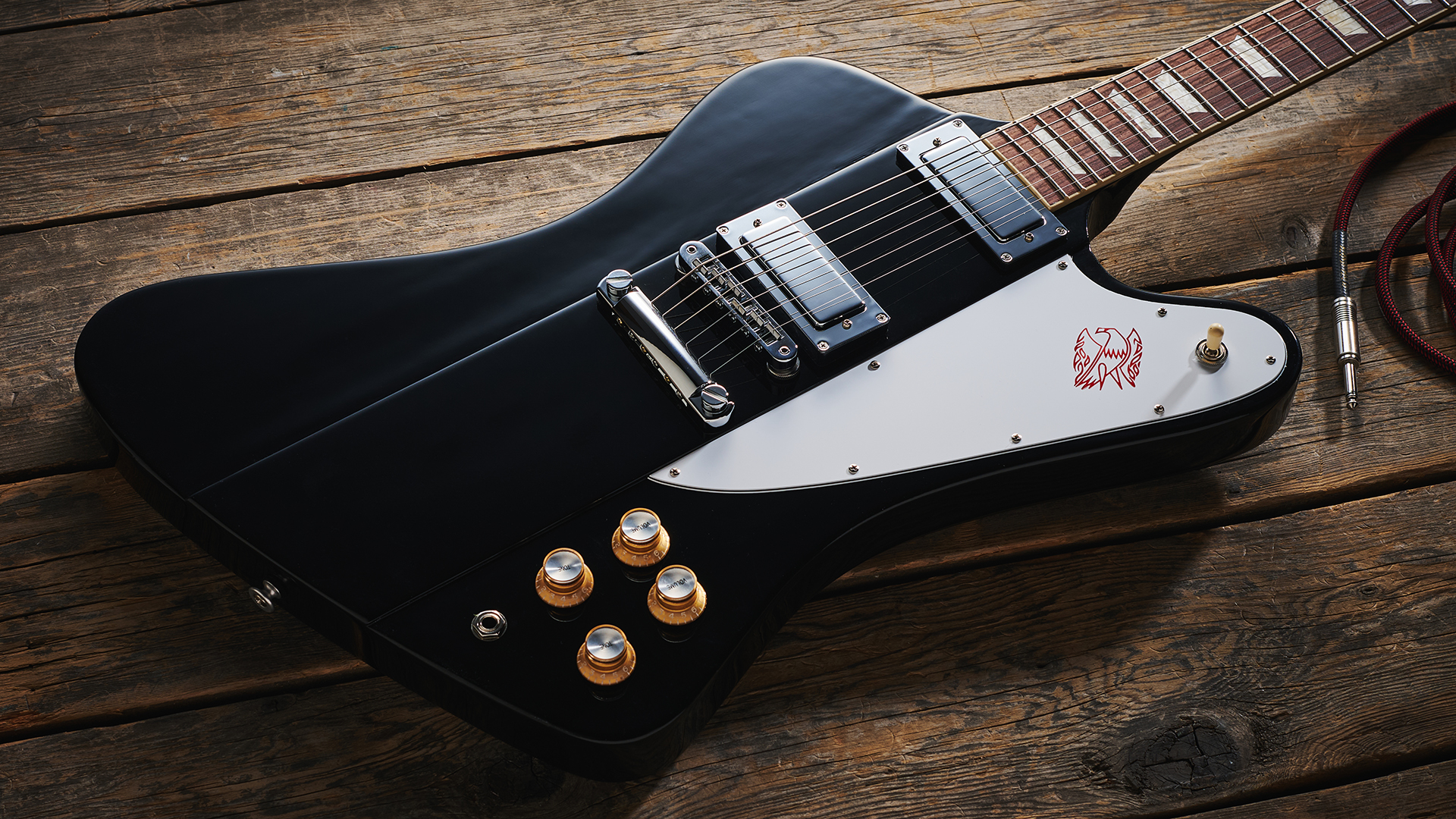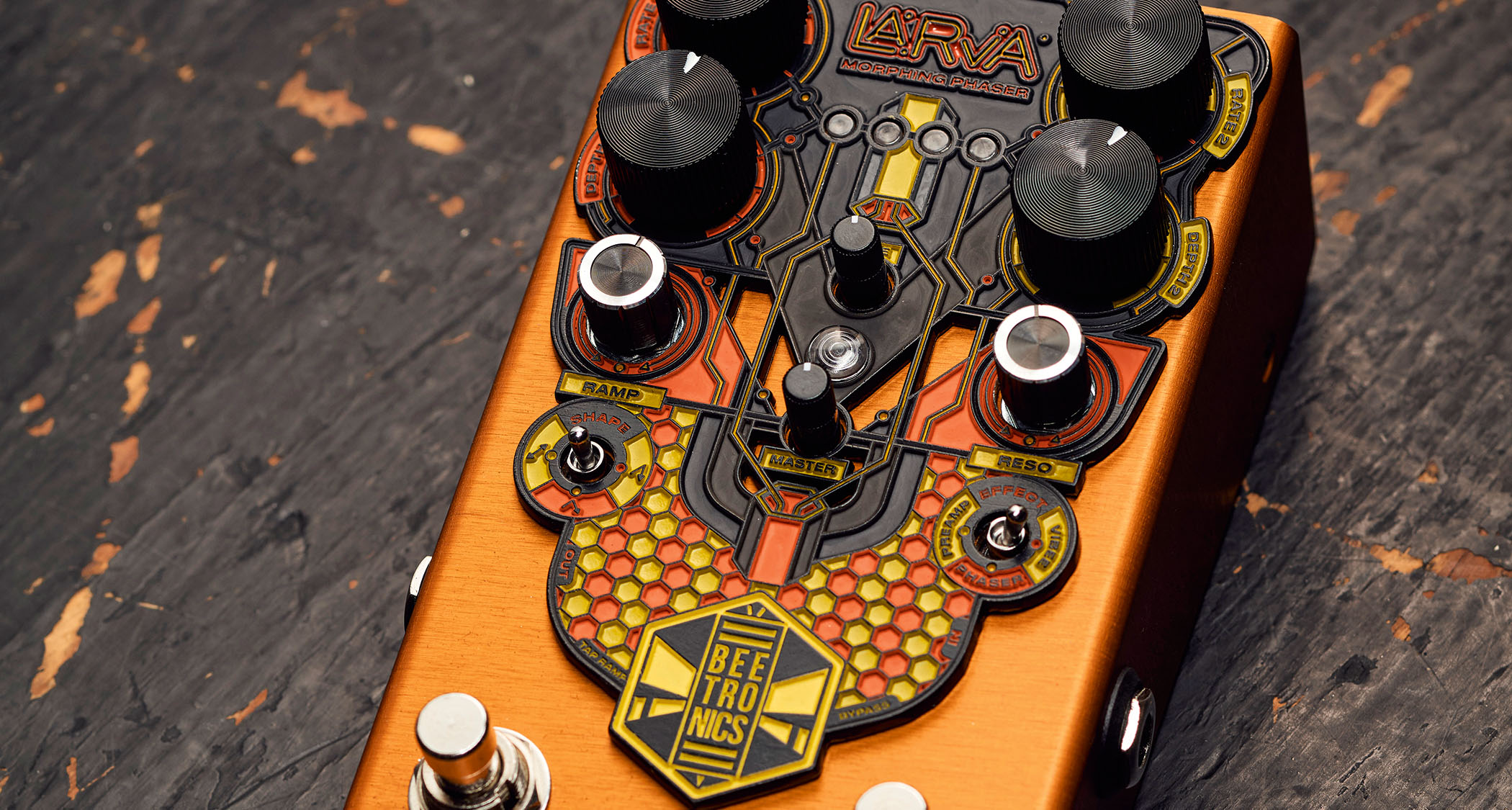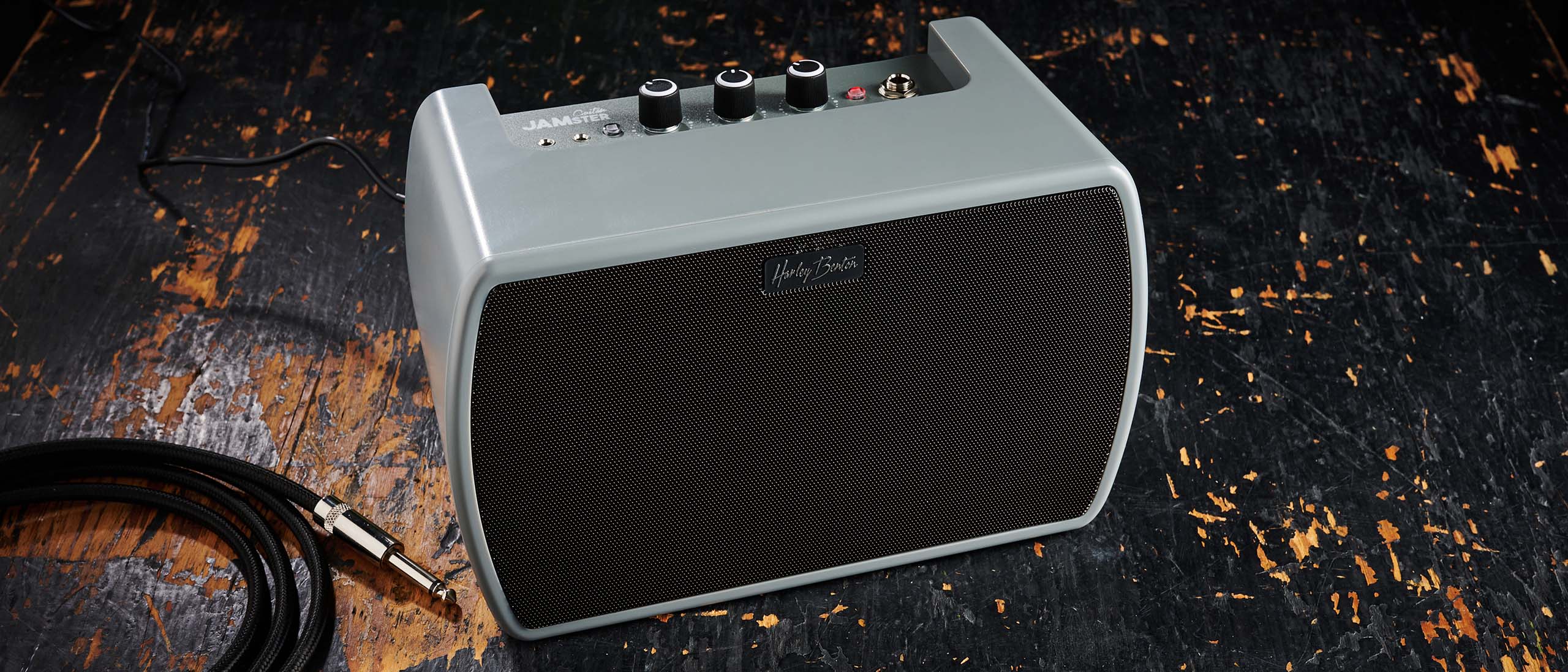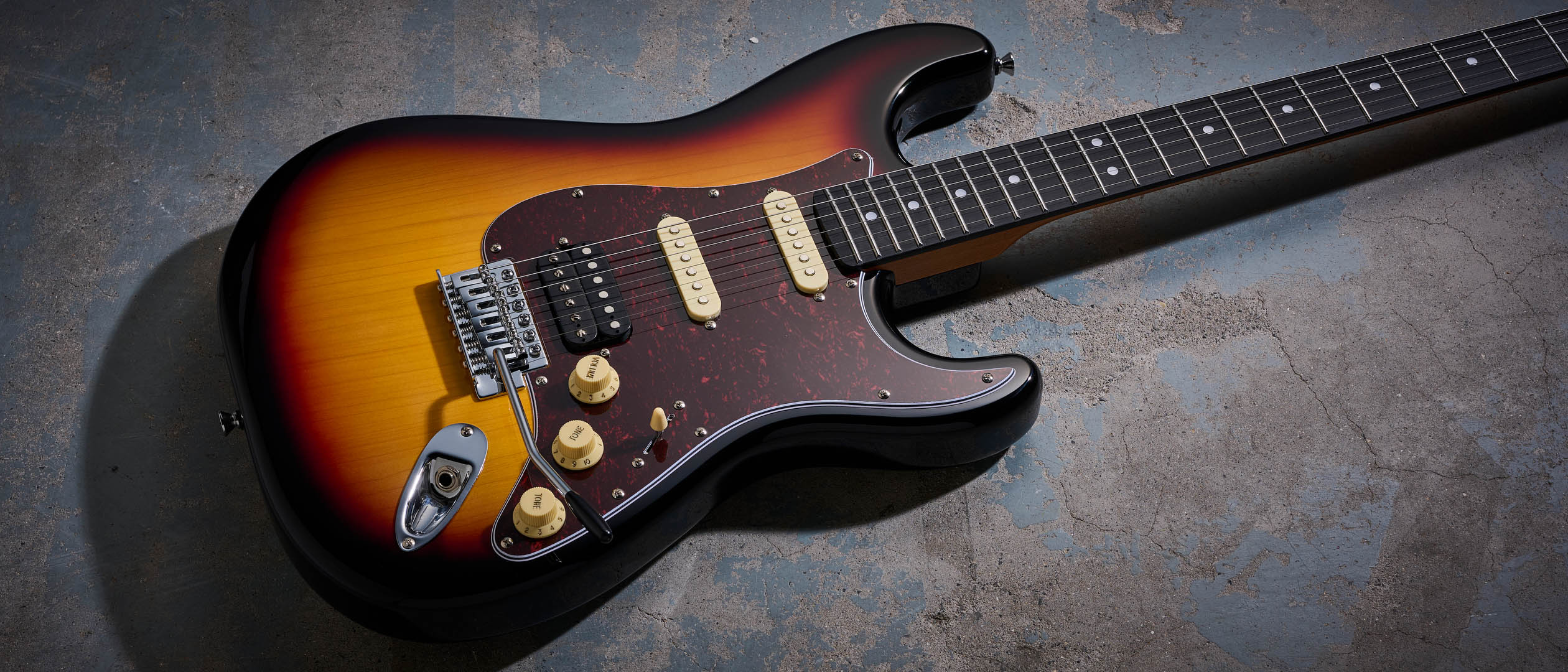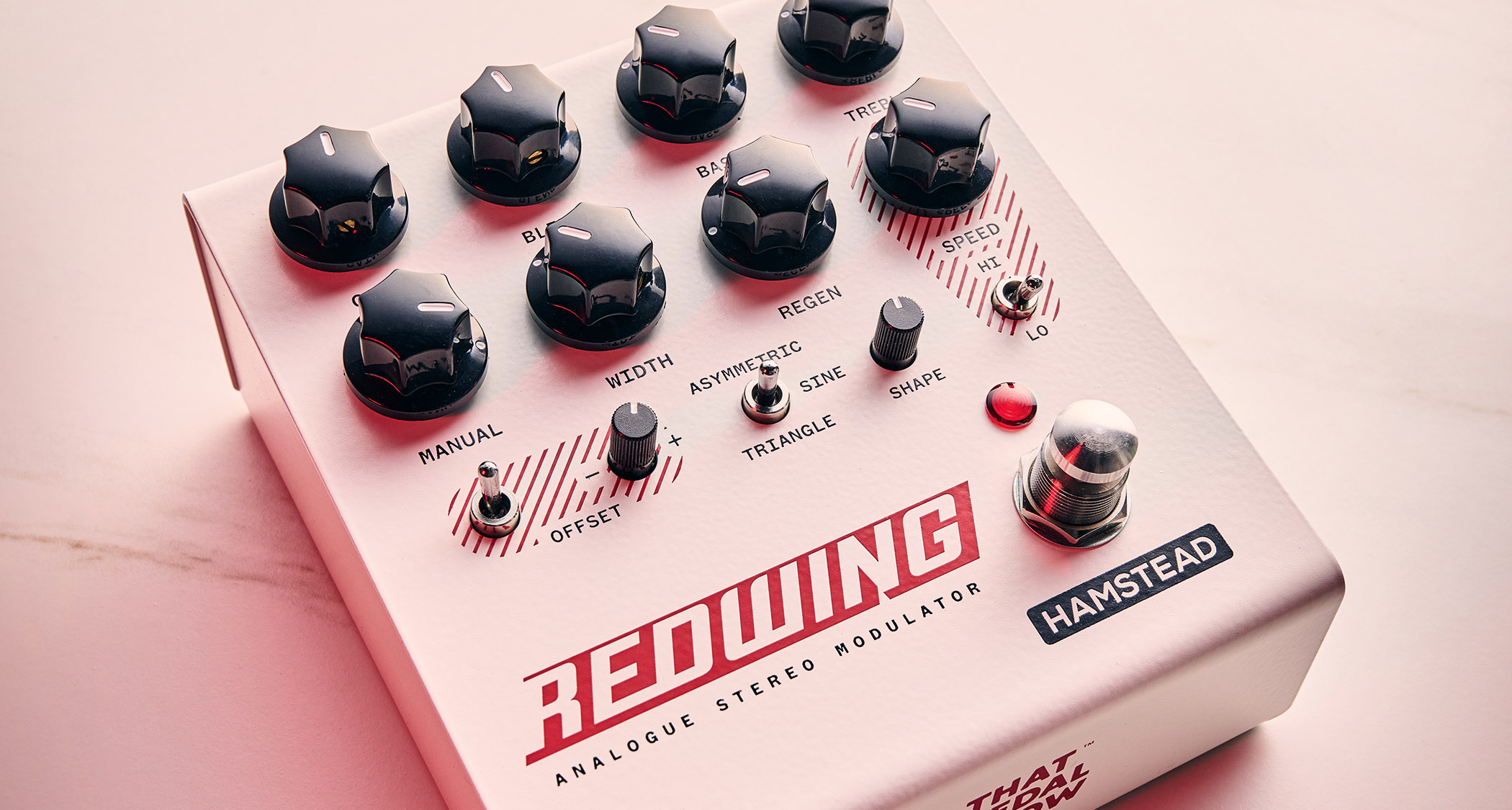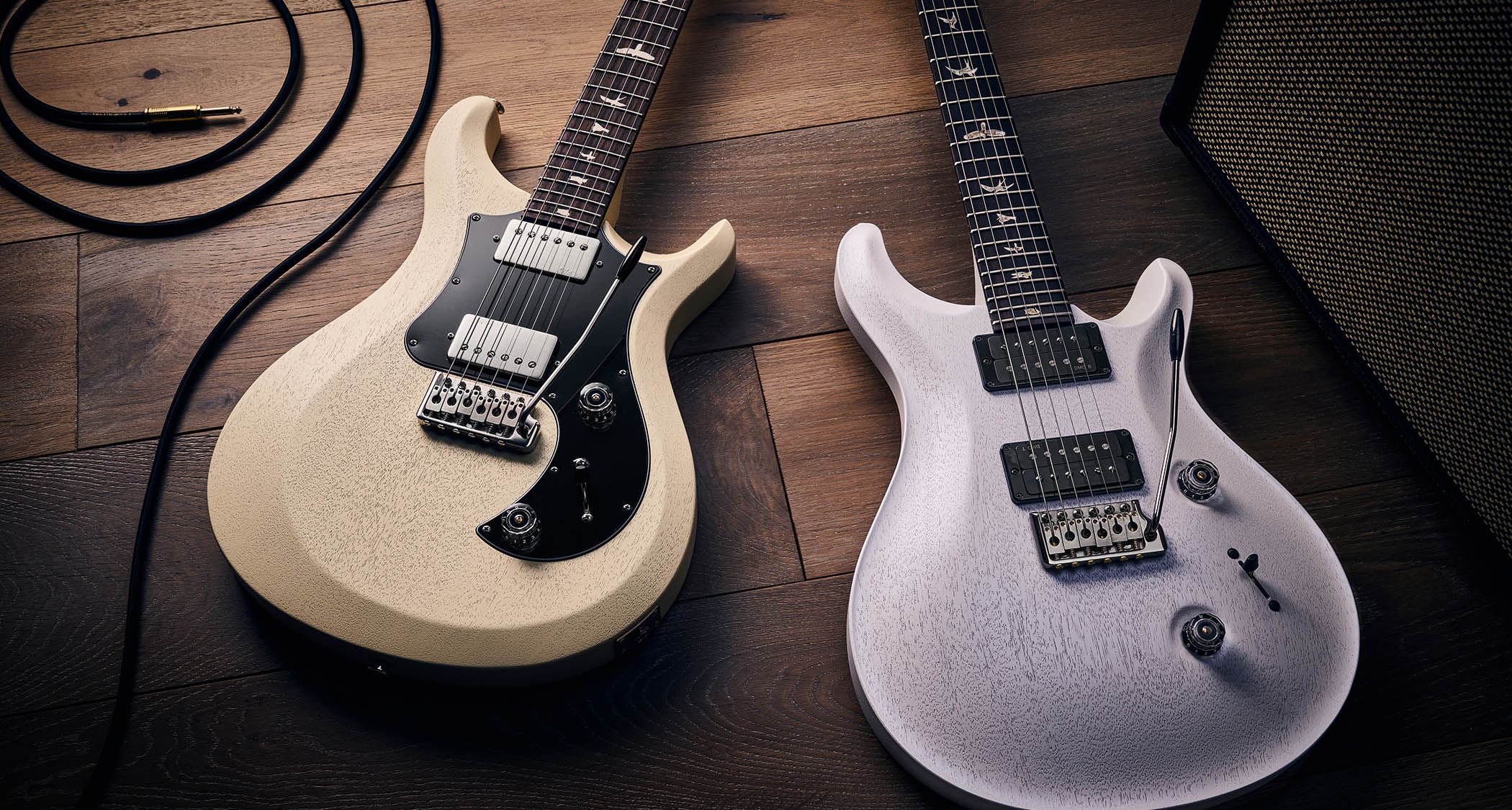Guitar World Verdict
The Martin Guitar D-28 Rich Robinson is an incredibly accurate recreation of Robinson’s father’s acoustic that has all the mojo of a vintage ’50s dreadnought.
Pros
- +
Powerful, complex voice.
- +
Looks authentically vintage.
- +
Rearward-shifted, non-scalloped bracing balances tone and boosts volume.
Cons
- -
It doesn't come cheap.
You can trust Guitar World
You could say that signature guitars are akin to vanity plates for an artist. Some are fun and evocative, while others serve individual expression. But after coming across the Martin Guitar D-28 Rich Robinson, I knew this signature guitar was something entirely different.
When I asked the founding member of the Black Crowes what the impetus was behind it, he said, “I wish I had a great Martin like this, but I’m not taking my dad’s on tour…”
What he’s talking about is his vintage 1954 Martin D-28, which was passed down to him from his father, Stanley “Stan” Robinson, who was a traveling musician with his folk band, the Appalachians, in the ’50s and ’60s; they even scored a single on the Billboard charts.
According to the younger Robinson, the original D-28 his father used was the guitar he learned to play on, write songs, and recorded with on every Black Crowes record. For Robinson, what started out as a search for a “gold standard” Martin to take on the road evolved into an “aged” signature acoustic guitar that’s a tender tribute to his father, who had a profound influence on him and his music.
Now, the D-28 Rich Robinson reflects all of that and more as an exact replica, right down to all the visible dings and wear and tear. And what’s more, you can hear the soul of a classic Martin D-28 recreated in stunning detail.
Features
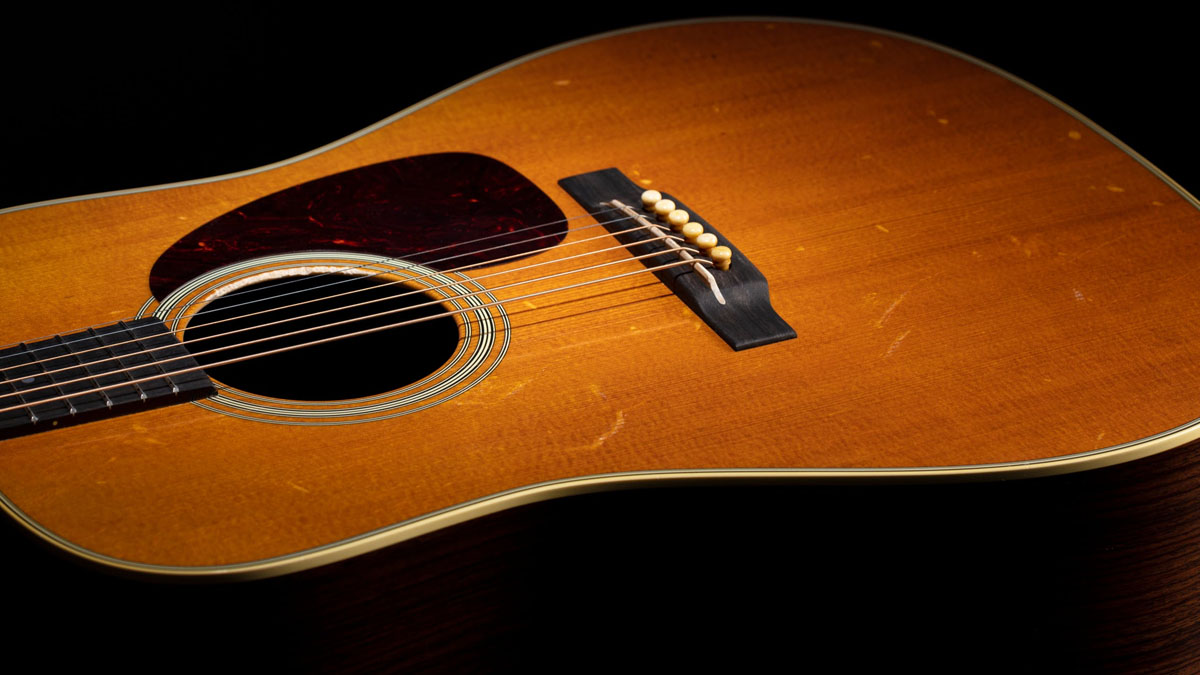
What’s interesting is the D-28 Rich Robinson is Martin’s first collaboration in replicating an artist’s personal instrument both visually and sonically rather than building a custom-made one.
Regardless, it’s still a top-of-the-line instrument, with Martin’s inimitable attention to detail. Feeling the guitar’s ultra-thin vintage gloss finish along with its aged satin-finished East Indian rosewood back and sides and aged Sitka spruce top, you have to scratch your head at how remarkable Martin’s aging process appears so uncannily authentic – you’d be hard-pressed to distinguish this guitar from a vintage D-28.
The mahogany neck has a hand-carved “Barrel and Heel” neck shape, which means it’s a fuller and rounder profile that becomes thicker as you approach the heel.
Everything about the guitar mirrors Martin’s “’50s-style” build quality that includes a square taper headstock shape with East Indian rosewood headplate, diamond volute, old style “Golden Era” script logo, rearward-shifted non-scalloped bracing, dovetail neck joint and authentic hide glue construction, an ebony fingerboard and bridge, and aged nickel enclosed tuners.
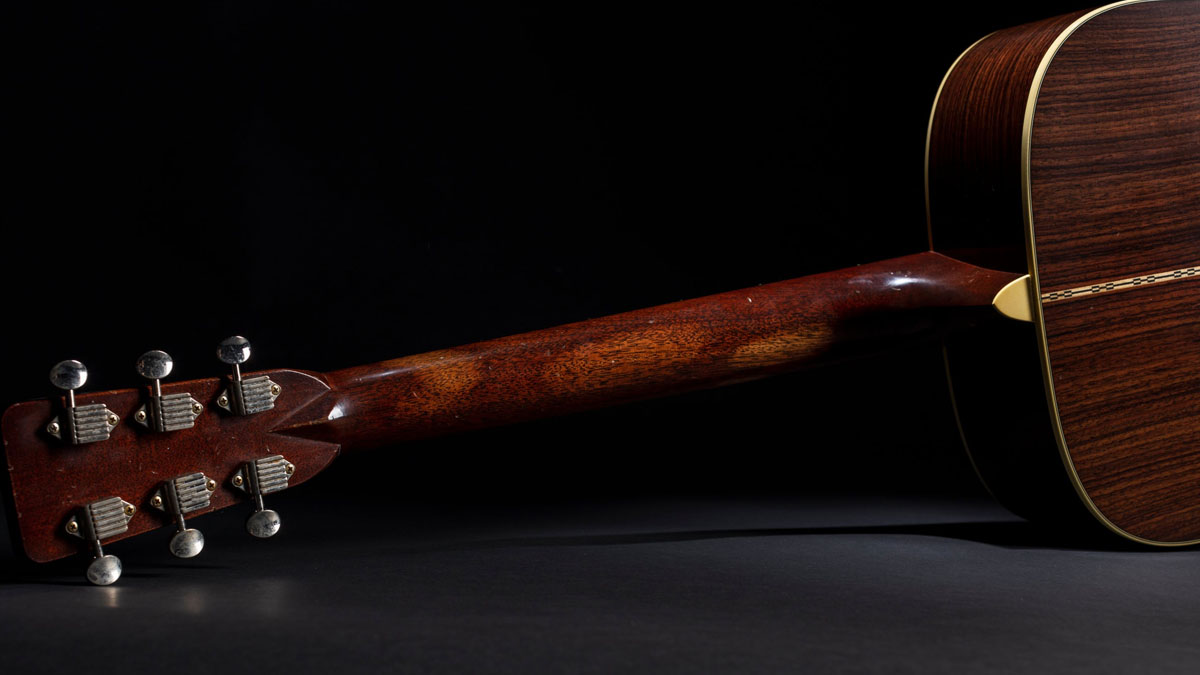
In what seems to be the only modification, Robinson requested that the bridge’s wings be slightly softened for comfort. Of note, Robinson’s father played that original D-28 onstage at the Grand Ole Opry, which is why he affectionately named the model “The Appalachian”.
If you peer inside the soundhole, you’ll see the label sticker pays him homage with that moniker, and it’s also signed by Robinson and numbered in sequence.
Performance
Not having the original to compare it to, it does seem the Martin team has nailed the overall vibe of Robinson’s D-28. And it would be hard to dispute that. For one, Robinson has glowingly signed off on it, and two, Martin is unsurpassed in textbook recreations of vintage Martin acoustics plucked from their own historical museum, and if anything, they’re doing just that for this archetypal ’50s-era “aged” signature.
As a result, the D-28 Robinson already feels played-in and casts a broken-in and captivatingly mature sound. The beefier neck shape of this signature may take some getting used to, but I’ve completely adjusted to it, and the taller frets make playing it a breeze. I also wholeheartedly believe its palm-filling profile contributes to its booming dreadnought tone.
It’s so detailed that I had to check it with my favorite marquee acoustics to remind me how puny they sound in comparison
That powerful and complex voice can equally be attributed to its patterned rear-shifted and non-scalloped bracing. It’s been said this bracing offers balanced tone and crisp volume – which it has in spades, but I find the guitar also rings out a mellower shimmer with a defined bass response that sounds big and present without being muddy. It’s so detailed that I had to check it with my favorite marquee acoustics to remind me how puny they sound in comparison.
There’s much to be said over deliberately “aged” guitars, but the D-28 Rich Robinson deserves a place at the dreadnought table.
Specs
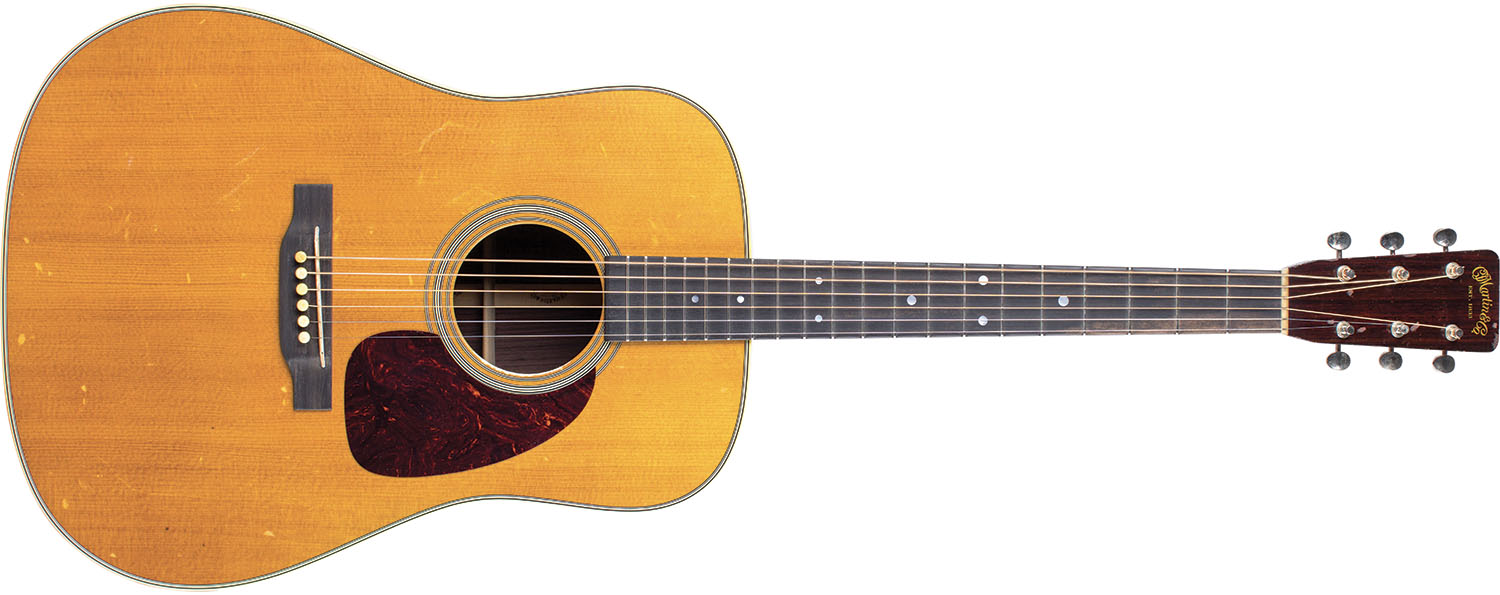
- PRICE: $6,999 / £7,395 street
- TYPE: Dreadnought
- TOP: Sitka Spruce
- BACK AND SIDES: East Indian rosewood
- BRACING: Bracing Pattern: Rearward Shifted X-Brace
- NECK: Mahogany, 1954 Rich Robinson Barrel & Heel
- SCALE: 25.4"
- FINGERBOARD: Ebony with MOP dot inlays, 20 frets
- HARDWARE: Ebony bridge, bone nut and saddle, aged nickel closed gear tuners with oval knobs
- FINISH: Vintage Gloss, Aged
- CONTACT: Martin
Paul Riario has been the tech/gear editor and online video presence for Guitar World for over 25 years. Paul is one of the few gear editors who has actually played and owned nearly all the original gear that most guitarists wax poetically about, and has survived this long by knowing every useless musical tidbit of classic rock, new wave, hair metal, grunge, and alternative genres. When Paul is not riding his road bike at any given moment, he remains a working musician, playing in two bands called SuperTrans Am and Radio Nashville.
“Among the most sought-after of all rhythm guitars… a power and projection unsurpassed by any other archtop”: Stromberg has made a long-awaited comeback, and we got our hands on its new Master 400 – a holy grail archtop with a price to match
The heaviest acoustic guitar ever made? Two budding builders craft an acoustic entirely from concrete because they “thought the idea was really funny”

